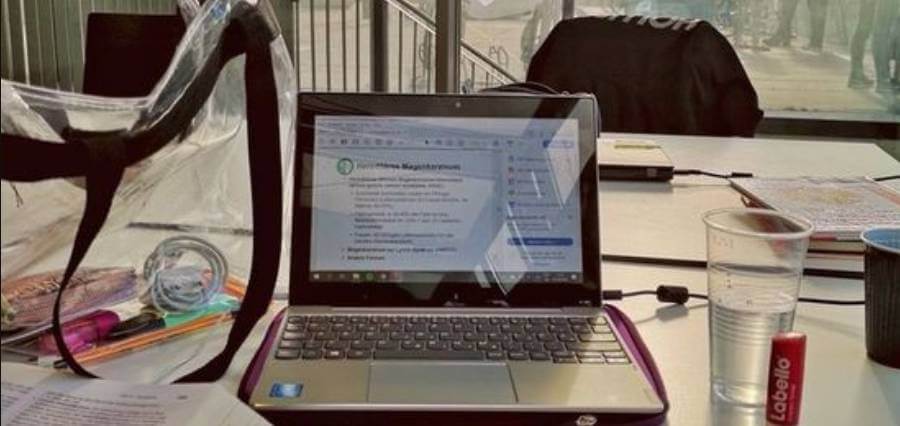Studying at home has its advantages: it is a relaxing and stress-free environment. There are a few reasons why studying at home can be difficult; with so many distractions, it’s easy to procrastinate—and once you do start, it’s easy to get off track. Watching TV, napping, looking through social media, or engaging in other things (even cleaning your room!) are all productivity killers that divert you from your goal of studying for or finishing that assignment.
When studying from home, you’ll need more willpower than normal to stay focused and adapt your tried-and-true study tactics to this new learning environment. Fortunately, there are a few strategies you may employ to increase your productivity. When studying at home, here are five tips to help you stay focused and get more done.
Get Enough Rest
Every school night, students of all ages should obtain at least eight hours of sleep. It’s the most effective technique to ensure that your brain is recharged and ready to digest all of the knowledge you’ve learned throughout the day. It may be tempting to stay up late to study, but getting enough sleep is more advantageous.
Our brains are busy consolidating memories and silently searching for solutions to difficulties we encounter when we sleep. Spending more time resting and comparatively lesser time being actively engaged in work, not only improves creativity and problem-solving abilities but also makes work time more efficient. Resting can include just taking time for books, going to that floating restaurant you always wanted to visit, visiting relatives, and taking time for books.
Establish a Study Area
It’s a great start if you already have a desk in your bedroom. Make room for your books, computer, and other study materials by clearing off space. If you don’t have a desk in your room (maybe because you share counter or table space with others), designate a separate study location. During your study time, make sure it’s clean, clutter-free, and typically silent.
When studying at home, creating a solid barrier between your study area and your leisure area can help you stay focused. This can also help you in restricting your academic stress to just your study area. Above all, maintain your study area clean and organized so that you can devote more time to learning.
Rewrite and Outline Your Notes
The majority of people believe that sticking to a regular outline structure helps them distill material into its most basic elements. When it comes time to take the exam, people find that connecting comparable concepts makes it simpler to remember. When drafting outlines, keep in mind that an outline can only be used as a learning tool if it is written in your own terms and format.
When studying, it may also be beneficial to use as many senses as possible because people retain information more readily when additional senses are involved. That’s why taking notes works in the first place: it allows you to put information into words and terms that you can grasp. Before a major exam, mouthing the words out loud while copying the notes is one way to engage yet another sense.
Create a Studying Schedule
Too many people think of studying as something to do when they have free time or don’t have anything else to do. However, if you schedule study time with your class time, it will be much less of a headache in the long run. Instead of cramming at the last minute, you’ll be more prepared because you won’t have crammed all of your studying into one 12-hour marathon. Spending 30 or 60 minutes each day before or after a class studying for that subject is a lot easier and will allow you to learn more of the information.
You should frequently study for as many classes as possible throughout the semester. Some students study every day, while others just study once or twice a week. It is not as vital to study on a regular basis as it is to study regularly. Even if you just open a book once a week for a class, it’s better than waiting until the first exam to cram for it. It’s easier to have a portable watch with you; this way, it will be easier to keep track of time.
Take Breaks and Schedule Rewards
It’s human nature to avoid studying because so many people see it as a chore or a task. If, on the other hand, you discover rewards to assist reinforce what you’re doing, you might be amazed at how your attitude changes over time.
To begin, break your study time into small chunks. For most people, studying for four hours at a time with no breaks is neither realistic nor enjoyable. It’s usually more sustainable and pleasurable to study for an hour and then take a 5-minute break and eat food. Divide your study time into manageable chunks that work for you.
Give yourself a genuine reward if you achieve your objectives. Maybe it’s saying, “I’ll treat myself to a wonderful dessert today at dinner,” go shopping while at it consider buying soda bottle wholesale to use when making soft drinks for your treats; studies show that sugars can improve short- term boost to memory, thinking and mental ability.
Conclusion
Studying does not have to be a constant source of stress and time commitment. It’s all about trying something new and figuring out what works best for you. Hopefully, you found these suggestions to be helpful.









